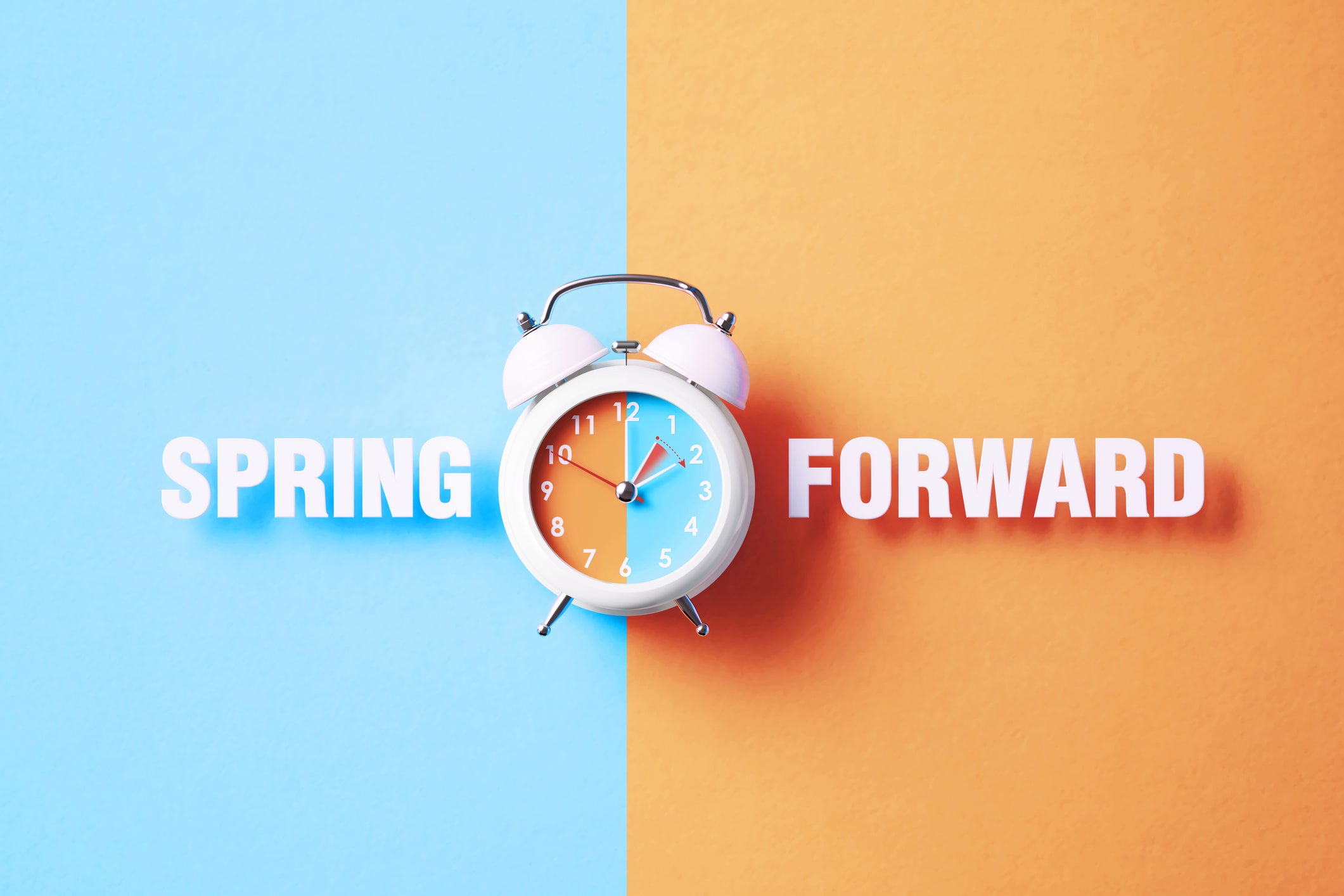Each year, as Daylight Saving Time begins, clocks spring forward and we lose an hour of sleep. The big switch this year is set for March 12. Despite losing an hour of sleep, it’s not all bad. Daylight Saving Time means longer days and warmer weather on the horizon. Yet, Daylight Saving Time can have some serious long-term effects.
According to the Centers for Disease Control and Prevention, “Extra daylight hours may allow for more fun in the sun, but we may want to consider how these changes in light and time can influence our circadian system and disrupt our sleep.” Losing one hour of sleep can affect productivity, concentration and physical and mental health. Recent studies have also found that Daylight Saving Time has long-term effects that can be associated with increased risk of heart attack and stroke.
Tips to Overcome Springing Forward
1. Go to bed earlier. Ease into the time change by adjusting your bedtime by 15 minutes each night leading up to the time change. This can be helpful for children who are more likely to feel the effects of time change.
2. Turn your clock forward on Saturday morning instead of Sunday morning. Allowing two days, rather than one to adjust, will help when Monday rolls around.
3. Develop a consistent sleep routine. Go to sleep and wake up each morning at the same time. This helps develop a consistent sleep cycle, which improves your overall sleep and functioning while awake.
4. Avoid napping if it isn’t part of your normal routine. Resist the urge to nap Sunday afternoon after waking earlier. Napping may interfere with your ability to fall asleep at night and delay your adjustment.
5. Enjoy the longer evenings. Daylight Saving Time means longer sunlight in the evenings. Take a walk, go for a bike ride and sit outside. Natural lighting helps reset your body clock.
6. Exercise: Physical activity is good for your health and helps you sleep better. Avoid working out close to your bedtime.
7. Avoid eating or drinking close to bedtime. Don’t eat too close to bedtime so you can fall asleep easier and rest peacefully.
8. Reduce screen time. Television, electronic devices and phones stimulate the brain and can make it harder to fall asleep. Try to avoid handheld screens at least two hours before bed and television one hour before bedtime.
When It’s Not Just a Little Sleepiness
Sleep-related difficulties affect millions of Americans and can affect your health. If your sleep problems persist or if they interfere with how you feel or function during the day, you may want to see your primary care physician.
The time change doesn’t affect everyone, and it doesn’t affect everyone equally. If it affects you, try these tips and see if they help. They just might be the key to adjusting to the time change and maintaining adequate sleep.

